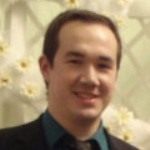|
|
|
Belmiro Danniel RODRIGUES MOREIRA |
CERN, Geneva - Switzerland |
|
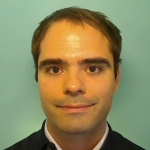 |
I finished in 2004 a BSc degree in Mathematics lectured at UTAD – Portugal,
and in 2009 a MSc degree in Informatics and Computer Engineering lectured at
FEUP – Portugal. Currently I'm working at CERN in the IT-PES group in two
different virtualization projects that covers the two big use cases which
have been identified at CERN: the service consolidation project and the
batch virtualization project. The first project aims to achieve the
traditional benefits of service consolidation like: decoupling hardware and
system image lifetime, reduced power requirements, maintenance reasons, etc.
With the batch virtualization project the main objectives are: dynamic
change of worker node types dependent on requirements; customization of
images for specific use cases, possibility to mix virtual and real
resources, etc. Also, I am involved in the evaluation of the Infrastructure
Sharing Facility (ISF) tool from Platform Computing in order to make better
use of virtual and physical resources within the computer centre. This could
be one solution to manage the CERN internal cloud, which spans both Linux
and Windows systems and covers a very diverse range of workloads.
|
|
|
|
|
Juan José RODRIGUEZ VÁZQUEZ |
CIEMAT, Madrid - Spain |
|
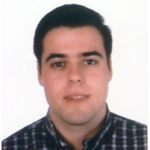 |
I am currently working as a system administrator at CIEMAT (Madrid, Spain).
Due to the involvement of my institute in the LCG project (as a tier-2), my
main task is the administration of our cluster for this purpose.
Additionally, I also support all the user equipments of our department. I
have worked with GNU/Linux and Windows mainly, but I have some knowledge of
OS X too. The programming languages I use more are C/C++, Java and shell
scripting.
|
|
|
|
|
Kamran SOOMRO |
University of the West of England, Bristol – U.K. |
|
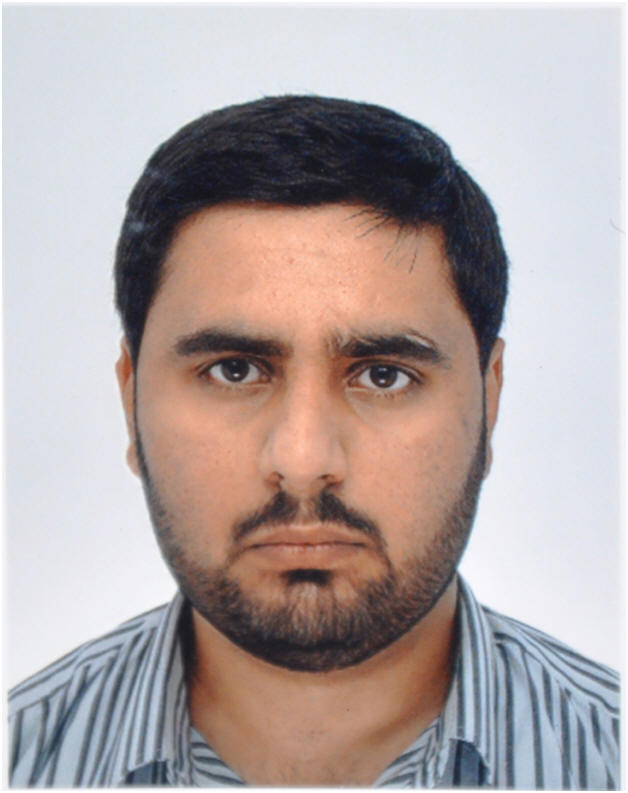 |
I am working with Prof Richard McClatchey as a PhD student. My PhD work is
related to analyzing provenance information to improve workflow design using
data mining techniques. I am also working on an EU project called neuGRID;
aimed at providing a neuroimaging analysis infrastructure to the medical
domain. My specific area of work is related to developing infrastructure
services for accessing grid resources and provenance collection and storage.
I am familiar with Java, Python, PHP and C++. I am also familiar with
Windows, Linux and Mac operating systems.
|
|
|
|
|
Maren UGLAND |
University of Bergen - Norway |
|
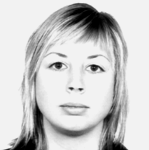 |
For my PhD studies, I am studying the branching fraction Bs->mu+mu- with
data from the ATLAS experiment at CERN. In the standard model this decay is
not possible at tree-level, and it is therefore very sensitive to
contributions from new physics. The goal is to improve the current limit for
the branching fraction set by the CDF experiment (short term), and once we
have enough data, perform the measurement. The code for my analysis is
written mostly in C++ (and a little python), but in the past I have also had
some experience using Java. I am familiar with Windows and Linux.
|
|
|
|
|
Frank VOLKMER |
Bergische Universität Wuppertal- Germany |
|
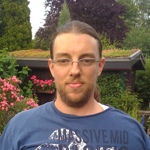 |
In the last months I gradually took responsibility for maintaining the ATLAS
Production System Dashboard which monitors all ATLAS tasks, where they are
executed, how much cpu time they use end whether they are successful or not.
The ProdSys Dashboard uses the Dashboard Web Framework, which was written in
Python and developed at CERN. The dashboard runs on an Apache + mod_python
system at CERN. This work includes the fixing of bugs and solving problems
as they arise, as well as maintaining the dashboard and carrying its
technology into the next decade. We, the dashboard team, started working on
a new system that will use newer, more dynamic web technologies. This will
help to generate new content for the dashboards more easily. From my
previous work in the private sector and at university I acquired programming
skills in C, C++, Guile and Java on all relevant operating systems,
including Windows XP, Mac OS X 10.5, Ubuntu and CentOS.
|
|
|
|
|
Henning WEILER |
CERN, Geneva - Switzerland |
|
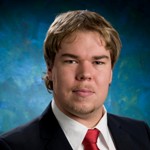 |
My current work focuses on the development of an intelligent module for a
new publication platform in high-energy physics named INSPIRE. The module
serves the purpose of solving author ambiguity--meaning the attribution of
scientific artifacts (documents, preprints, articles, data, etc.) to their
real creators. The disambiguation is done by using several metrics for a
pair-wise comparison of potentially equal author entities within a
pre-clustered block of authors. The module and the algorithm are developed
in Python which uses a MySQL back-end for data storage and resides in the
open source framework of the Invenio software platform developed at CERN. In
general, my studies in Computer Science thought me the fundamental
structures and paradigms of programming and problem solving which are
applicable on a variety of programming languages. With Mac OS X and Linux
(preferably a Debian) as my primary operating systems, I do not fear the use
of Windows since I am a M$ Certified Professional for handling both Windows
XP and 2kServer.
|
|
|
|
|
Tomasz WOLAK |
CERN, Geneva - Switzerland |
|
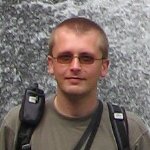 |
Since September 2009 I am working as fellow at CERN in IT/Grid Technology
group, in section responsible for certification, testing and releases of the
gLite middleware (grid middleware used in LCG), and the ETICS system
development (used for building and testing gLite). I am working mainly as a
sysadmin - I manage CERN certification testbed running a number of GRID
services (SEs, CEs, WNs, WMS, DPM,...). Currently I am also maintainer of
the vNode project - system for managing Xen virtual machines, and I am
responsible for group's virtualization infrastructure (based on vNode and
Xen) used mainly in release process and development of gLite. I am also
involved in computer security - I manage system automating firewall rules
generation for machines running grid services. In the past I did some
programming in C/C++, Java, Perl, SCL (Siemens PLCs), PHP, and SQL. Being a
sysadmin I do also bash scripting and recently I started using Python. I use
mainly GNU/Linux (since over 10 years), occasionally MacOSX, but I also used
(or at least tried) other operating systems (mostly u*x-like, but I also use
MS Windows if I have to ;-)
|
|
|
|
|
Davide ZAMBON |
CERN, Geneva - Switzerland |
|
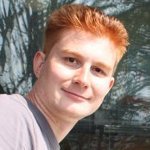 |
As technical student at CERN I am currently working on the T0 monitoring
system. I am going to base my Master Thesis in Computer Science at the
University of Udine, on this work. Since my arrival to CERN, I had mostly
worked on web applications over the T0 database. During my educational
(technical high school and university) I learnt different programming
languages: java,c,c++, pascal, scheme, haskell and some markup languages:
XML,HTML. As DBMS I used mysql, postgresql and now oracle.
|
|
|
|
|
Jianlin ZHU |
CERN, Geneva - Switzerland |
|
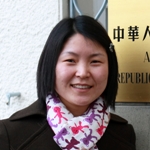 |
I am a PhD student of Huazhong Normal University in China. I am working on
AliEn project of ALICE experiment. AliEn is a lightweight Grid framework
built around Open Source components using the combination of Web Service and
distributed agent model. It is being developed by the ALICE collaboration as
a production environment for the simulation, reconstruction and analysis of
physics data.AliEn is written in perl. What I am doing is transferring the
SOAP web services to apache (httpd) and adding secure function to the web
services. The project environment is SLC5 and C ,C++,perl ,shell are the
languages I am familiar.
|
|
|
|
|
Marcelo ZIMBRES SILVA |
Campinas State University - Brazil |
|
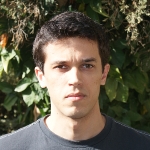 |
I am a Ph.D. student of Physics at Campinas State University. I am currently
developing a ROOT based application to
analyse
data collected by the Pierre Auger observatory. The code is an
implementation of the spherical wavelet transform that is being used for
denoising and as a tool to look for point like cosmic ray sources and
directional structures in the Pierre Auger sky. Since I began this project
in 2008, I gained experience on the software development in the Unix
environment (using Ubuntu privately and other Linux distributions in the
Institute), that include the use of the version control system Git, GNU
build system and extensive use of the C++ programming language.
|
|
|
|
